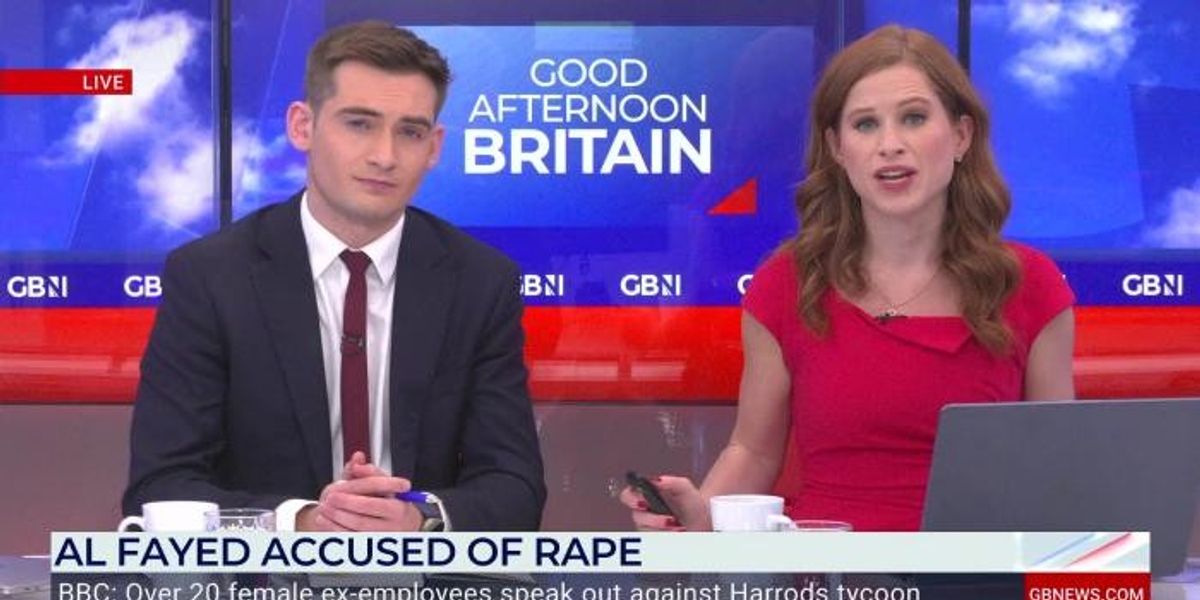The Complex Legacy of Mohammed Al Fayed: Insights from a Former Showbiz Reporter
The world of high-profile business figures is often shrouded in glamour, intrigue, and sometimes, scandal. Mohammed Al Fayed, the late owner of the iconic Harrods department store in London, was no exception. Recently, allegations have surfaced claiming that Al Fayed raped five women and sexually assaulted many more during his tenure at the luxury store. These serious accusations have reignited discussions about his character and behavior, prompting former showbiz reporter Leigh Purves to share her own experiences with him.
A Flirtatious Encounter
Leigh Purves, who worked as a showbiz reporter in the early 2000s, recounted her first meeting with Al Fayed, which took place at the Harrods offices. She described the atmosphere as "extremely nerve-wracking and very intimidating," especially with armed bodyguards present behind a glass partition. Despite the intimidating setting, Purves noted that Al Fayed was "extremely polite" and "charming," which is a stark contrast to the serious allegations now being discussed.
During their conversation, Purves found herself opening up about various topics, including Al Fayed’s views on the Royal Family and the British media. She was attempting to gauge his interest in participating in a documentary about Harrods, which she believed would be groundbreaking television. However, the dynamic shifted dramatically when Al Fayed offered to lend her £20,000 to help her buy a flat in London—a gesture she politely declined.
The Shift in Dynamics
Purves noted a "definite shift in the mood" following her refusal of the financial offer. This change in atmosphere highlights the complexities of power dynamics in such encounters. While she initially felt a sense of camaraderie and friendship with Al Fayed, the rejection seemed to alter their relationship. Subsequent meetings became less frequent, and she eventually found herself phased out of his circle.
This experience raises questions about the nature of relationships between powerful individuals and those in the media. Purves was acutely aware of the risks associated with such interactions, especially as a reporter for a tabloid newspaper. She insisted on holding their meetings in public spaces, such as the cafes within Harrods, to maintain a level of safety and transparency. This decision underscores the importance of boundaries and the need for caution when navigating relationships with influential figures.
Rumors and Realities
While Purves acknowledged that there were "rumours" about Al Fayed’s flirtatious nature prior to their meeting, she expressed surprise at the recent allegations. Her comments reflect a broader societal challenge: the difficulty of reconciling personal experiences with the darker narratives that emerge about public figures. Many people who interacted with Al Fayed may have had varied experiences, leading to a complex legacy that is difficult to untangle.
Purves’s account serves as a reminder that the public persona of a figure like Al Fayed can often mask troubling behaviors that may not be immediately apparent to those who encounter them in professional settings. The juxtaposition of his charm and the serious allegations against him illustrates the duality of human nature and the complexities of power dynamics.
Conclusion: A Legacy Under Scrutiny
As the allegations against Mohammed Al Fayed continue to unfold, they prompt a reevaluation of his legacy and the impact of his actions on those around him. Leigh Purves’s experiences provide a unique perspective on the man behind the headlines, highlighting the intricate dance of charm, power, and the potential for misconduct.
In a world where the stories of powerful individuals often dominate the narrative, it is crucial to listen to the voices of those who have interacted with them. Purves’s reflections not only shed light on her personal encounters with Al Fayed but also serve as a cautionary tale about the complexities of navigating relationships with influential figures. As society grapples with these serious allegations, the need for accountability and transparency remains paramount.
